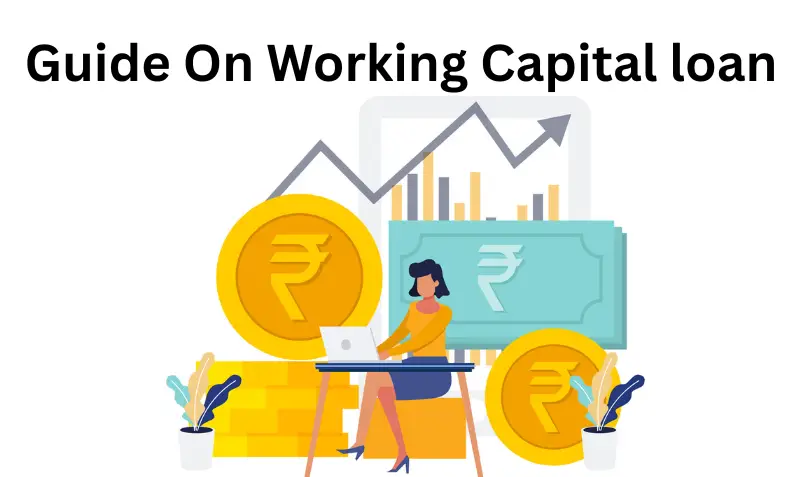
Complete Guide on Working Capital Loan in India (2025)
Running a business in India is never a straight road. Some months bring good profits, while in others, even meeting basic expenses feels like a struggle. Salaries, raw material purchases, electricity bills, or seasonal expenses — all demand cash on time. Many businesses, especially small and medium-sized enterprises (SMEs), face this challenge. This is exactly where a Working Capital Loan comes in.
A Working Capital Loan helps you maintain smooth cash flow when revenues are delayed or expenses suddenly increase. Instead of disturbing your savings or long-term investments, this loan provides short-term funding to keep your business moving. In 2025, with more businesses shifting online and facing stiff competition, understanding and using a Working Capital Loan wisely can be a game changer.
In this guide, we will explore everything you need to know about Working Capital Loans in India — from types and benefits to eligibility, documentation, and common mistakes to avoid.
What is a Working Capital Loan?
A Working Capital Loan is a short-term loan given to businesses for handling daily operational expenses. Unlike term loans that are used for big purchases (machinery, property, etc.), this loan is specifically for maintaining liquidity in business operations.
Key Features:
- Short repayment tenure (6 months to 3 years)
- Available as both secured and unsecured loans
- Supports the management of day-to-day expenses such as salaries, utilities, raw materials, and rent.
- Often comes with flexible repayment options
Example:
Suppose you own a wholesale business that sees high demand during Diwali. To stock more products, you need extra funds. Instead of losing sales due to shortage, you apply for a Working Capital Loan. This allows you to fulfill the demand and repay the loan later using the profits earned.
Types of Working Capital Loans in India
Depending on business needs, a Working Capital Loan can be structured in different ways:
1. Cash Credit Facility
You can withdraw money within a certain limit set by the bank, using your business assets as security. Interest is charged only on the amount used.
2. Overdraft Facility
Linked to your current account, overdraft allows you to withdraw more than your available balance, up to a fixed limit.
3. Short-Term Business Loan
A fixed loan amount given for 6–24 months without collateral in most cases.
4. Invoice Financing
If your clients take time to pay invoices, you can use those invoices as collateral to get a Working Capital Loan.
5. Line of Credit
Similar to credit cards, you can borrow funds anytime within the approved limit and pay interest only on the amount used.
6. Trade Credit
Suppliers provide goods or raw materials on credit, which acts as indirect working capital support.
Benefits of a Working Capital Loan
A Working Capital Loan can bring multiple advantages to businesses:
- Smooth Cash Flow – Keeps your operations running even when income is delayed.
- Quick Access to Funds – Many NBFCs approve loans within 24–48 hours.
- Collateral-Free Options – Unsecured working capital loans are available, especially for SMEs and startups.
- Builds Credit History – Timely repayment strengthens your business credibility.
- Flexibility – Different loan types ensure you can choose what fits your situation best.
- No Impact on Long-Term Investments – You don’t have to sell assets or dip into savings.
Eligibility for a Working Capital Loan
Eligibility may differ among lenders, but generally, you must:
- Be running a business for at least 1–2 years
- Show a minimum turnover (often ₹10–40 lakhs annually)
- Maintain a good credit score (650 or above preferred)
- Provide proper KYC and business documents
Some schemes, such as Working Capital Loans for MSMEs, come with easier terms thanks to government support initiatives.
Documents Required for a Working Capital Loan
When applying, keep these documents ready:
- KYC documents (Aadhaar, PAN, business proof)
- Business registration certificate
- GST returns (last 1–2 years)
- Bank statements (6–12 months)
- Balance sheet and profit-loss statement
- Income tax returns
Providing accurate and complete documentation greatly improves the likelihood of a swift approval.
Secured vs Unsecured Working Capital Loan
There are two main categories of working capital loans:
- Secured Working Capital Loan – Requires collateral (property, fixed deposit, machinery, etc.). Comes with lower interest rates.
- Unsecured Working Capital Loan – No collateral required, but interest rates are slightly higher. Suitable for startups and SMEs.
Choosing between the two depends on your business size, assets, and repayment capacity.
Common Mistakes to Avoid While Applying
Many entrepreneurs make small but costly mistakes while applying for a Working Capital Loan:
- Applying without checking eligibility criteria
- Ignoring credit score and financial health
- Requesting higher loan amounts than required
- Not comparing lenders before applying
- Submitting incomplete documents
- Overlooking repayment capacity
- Mixing personal and business finances
- Choosing the wrong type of loan (e.g., term loan instead of invoice financing)
- Not reading terms & conditions carefully
By avoiding these mistakes, you can save valuable time and reduce unnecessary financial losses.
Working Capital Loan for MSMEs
MSMEs form the backbone of India’s economy, and many government schemes are designed to provide easy access to credit. MSMEs often face irregular cash flow, making Working Capital Loans critical for survival and growth.
Some schemes under which MSMEs can get working capital finance include:
- CGTMSE scheme
- Mudra Loans (for small businesses)
- Priority lending from banks
Working Capital Loan Without Collateral
For businesses that don’t own large assets, lenders also offer collateral-free Working Capital Loans. These are especially popular among startups, freelancers, and service-based businesses.
Though interest rates may be higher, they save you from risking property or machinery.
Interest Rates on Working Capital Loan
Interest rates depend on whether the loan is secured or unsecured, your credit score, turnover, and lender policies. In India (2025):
- Secured loans: 9–12% per annum
- Unsecured loans: 12–18% per annum
NBFCs may offer slightly higher rates than traditional banks but provide faster approvals.
How to Apply for a Working Capital Loan
- Assess your cash flow requirements
- Check your eligibility and credit score
- Compare different lenders (banks & NBFCs)
- Prepare your documents
- Apply online or offline
- Review loan terms carefully before signing
FAQs on Working Capital Loan
Q1. Can startups apply for a Working Capital Loan?
Yes, many NBFCs and fintech lenders provide unsecured working capital loans to startups.
Q2. What is the maximum tenure of a Working Capital Loan?
Usually, between 6 months and 3 years.
Q3. Is collateral always required?
No. Unsecured loans are available without collateral.
Q4. What happens if I miss EMI payments?
It negatively affects your credit score and may increase penalties.
Q5. Can I prepay my Working Capital Loan?
Yes, but check if your lender charges prepayment fees.
Conclusion
A Working Capital Loan is one of the most effective financial tools for keeping your business operations stable. Whether you are an MSME owner, a trader, or a startup founder, this loan can help you manage day-to-day expenses without disturbing your savings or long-term plans.
But remember — the key to using a Working Capital Loan wisely lies in understanding your needs, choosing the right type of loan, borrowing only what you can repay, and avoiding common mistakes. In 2025, with financial technology making loans faster and more accessible, getting the right working capital support is easier than ever.
So, if your business needs a short-term cash boost, consider applying for a Working Capital Loan today and keep your business growth on track.
At workingcapitalloan.co.in, we are committed to helping businesses of all sizes access the right financial support at the right time. Our goal is to simplify the loan process by providing clear information, easy guidance, and expert assistance. Whether you’re a startup, an MSME, or a growing enterprise, we ensure that your working capital needs are met quickly and efficiently.
Contact Us
1204 GD – ITL Building, B-08,
Netaji Subhash Place, Delhi-110034
Email: ceo@nkbkredit.com
Phone: +91 7503211000, +91 9654981031
Services
Important Links
Disclaimer
This website functions as a working capital–focused advisory channel supporting individuals and businesses seeking structured funding solutions. Advisory, documentation, and lender coordination services are provided by NKB Kredit Solutions Pvt. Ltd., a registered Indian company offering business finance advisory services.
Copyright © 2026 All Rights Reserved by NKB Kredit Solutions (P) Ltd.
